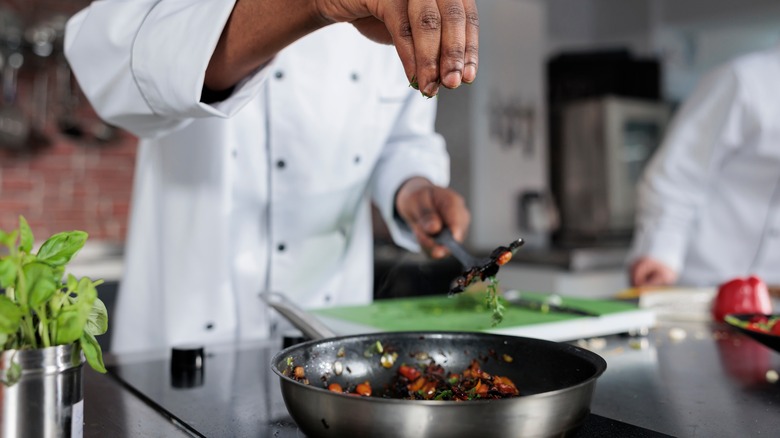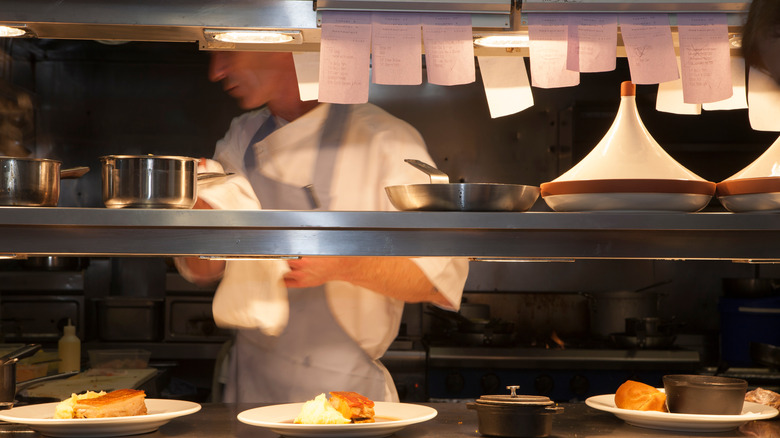What Chefs Mean When They Say Food Is 'Dying On The Pass'
If you've worked in a restaurant, been seated in proximity to a bustling kitchen, or watched "The Bear," you know that chefs and line cooks have their own unique way of communicating with each other. To an outside observer, a busy night at a restaurant might look something like a night at the ballet, with the chef as the conductor, the cooks as the orchestra, and the hosts and waitstaff as the nimble dancers. If a sports metaphor is more your bag, maybe the chef is the strict coach — and occasional referee — shouting drills to the team.
Certain words and phrases in the professional-kitchen lexicon are easy to interpret (lingo like "on deck," "in the weeds," and "no-show" are commonly used outside of restaurants), while some are a little more mysterious — especially when they involve numbers or evoke the language of battle. Here's what chefs mean when they say something is "dying on the pass."
It's getting cold
Restaurant speak may have once been exclusive to professionals, but thanks to the internet, the cat is out of the bag. Insider breaks down several terms you might hear shouted from the kitchen on your way to the bathroom at a fancy dinner, including "shoe" (a cook who's considered unskilled or inexperienced), soigne (a way to describe a particularly elegant dish that Insider says is "mostly used by wannabe fine-dining elitists"), and five out (a signal that a dish will be ready in five minutes).
If you hear someone yell that a dish is "dying on the pass," it means it's been sitting on the pass (the bridge between the cooks and the waitstaff where plated dishes are placed, per the outlet) "for an inordinate amount of time" and is getting cold. In this case, the chef or cook who shouts this out will be addressing the waitstaff as opposed to their fellow kitchen denizens.
'86 on asparagus, Chef'
While no one knows the exact origins of the phrase "dying on the pass," other popular kitchen terms are a little easier to trace — or at least to theorize over. According to Mental Floss, the first use of "86" (which stands for a dish or ingredient that's been taken off the menu, per Michelin Guide) may have occurred during the bustling 1930s restaurant scene as slang for the word "nix." In 1933, syndicated newspaper gossip columnist Walter Winchell featured the term in a "glossary of soda-fountain lingo," per the outlet.
Another theory has it that the term was born in the Prohibition era at Chumley's, a New York City bar located at 86 Bedford Street. Legend has it, per Mental Floss, that Chumley's had a bit of a quid pro quo relationship with local police officers, who would alert the bar to "86" customers through the back door before a booze raid was set to take place.


